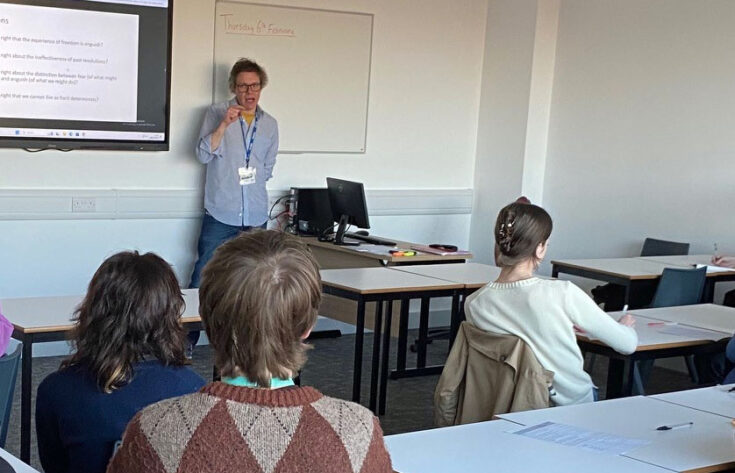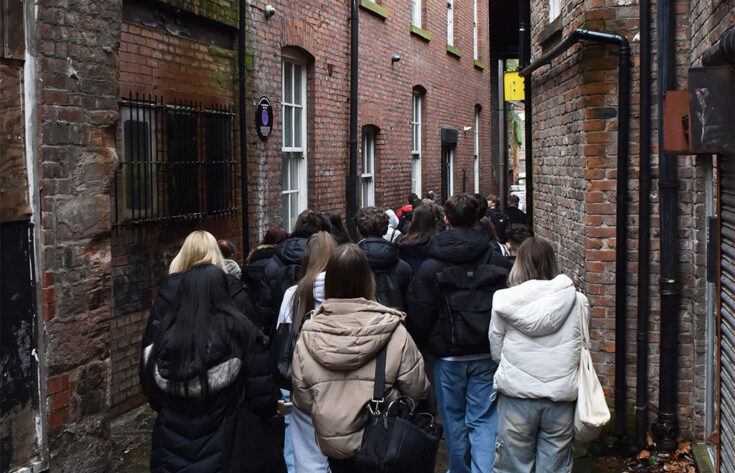Chemistry
Chemistry is a linear A level course that requires, and develops, a variety of skills from mathematical calculations and problem solving to analysis and practical skills. The study of Chemistry allows us to understand more about the world, including fuel cells, pharmaceutical synthesis, buffer systems in cosmetics and why and how reactions happen.
It is 100% exam based with the practical endorsement reported separately from the A level grade. The practical endorsement allows opportunity to develop fundamental skills needed to collect and analyse empirical data. Skills in planning, implementing, analysing and evaluating, will also be developed throughout the course and will be assessed in the written papers.

This course will be examined at the end of 2 years of study. There will be three external written exams: two of these are 2 hours and 15 minutes long, one will be 1 hour 30 minutes long. The shortest exam will cover questions on ALL topics studied over the 2 year course.
The exams will be in May or June of the second year. You will also have practical assessments throughout the course; you will receive a separate pass or fail mark in the practical endorsement part of the course.
The course is split into 6 modules:
Module 1 – Development of practical skills in chemistry
- Practical skills assessed in written examinations (all 3 exams)
- Practical skills assessed in the practical endorsement – throughout the course
Module 2 – Foundations in chemistry
- Atoms, compounds, molecules and equations (maths)
- Amount of substance (the mole – maths)
- Acid-base and redox reactions
- Electrons, bonding and structure
Module 3 – Periodic table and energy
- The periodic table and periodicity
- Group 2 and group 7
- Qualitative analysis
- Enthalpy changes
- Reaction rates and equilibrium (qualitative)
Module 4 – Core organic chemistry
- Basic concepts
- Hydrocarbons
- Alcohols and haloalkanes
- Organic synthesis
- Analytical techniques (IR and MS)
Module 5 – Physical chemistry and transition elements
- Reaction rates and equilibrium (quantitative – maths!)
pH and buffers (maths) - Enthalpy, entropy and free energy (maths)
- Redox and electrode potentials (maths)
- Transition elements (maths)
Module 6 – Organic chemistry and analysis
- Aromatic compounds
- Carbonyl compounds
- Carboxylic acids and esters
- Nitrogen compounds
- Polymers
- Organic synthesis
- Chromatography and spectroscopy (NMR)
Choosing to study Chemistry can open the door to an exciting range of careers including medicine, forensics, genetics, engineering, environmental science, biotechnology, materials or food technology, space exploration or patent law.
You may choose to work in industry producing pharmaceuticals or in the expanding field of nano-materials helping to revolutionise energy production and electronics. You may wish to pursue a career in research, developing new materials or discovering new medicines. Another option is to stay in education either as a teacher or lecturer or as a research associate.
Students in Year 1 can take part in two national competitions, the Cambridge Chemistry Challenge and Schools’ Analyst Competition.
In year 2 students can take part in the Royal Society of Chemistry’s Olympiad competition, a national stretch and challenge competition that really puts your skills to the test”












